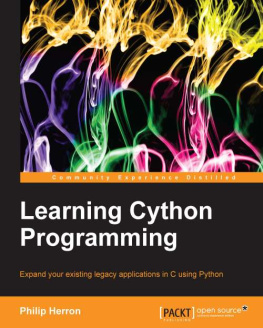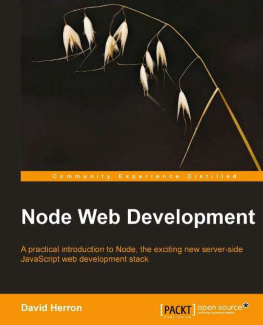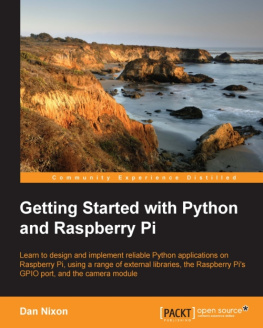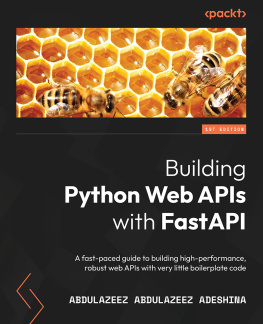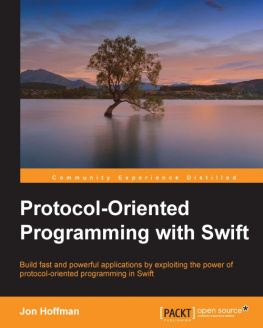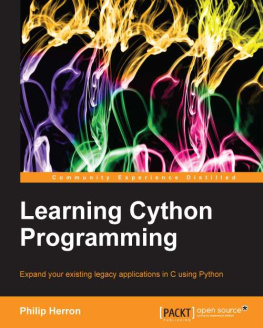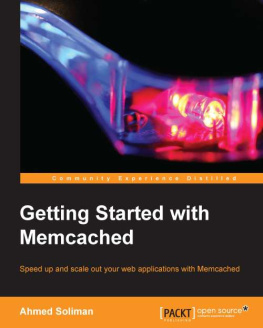Hardik B. Soni
About the Author
Philip Herron is an avid software engineer who focuses his passion towards compilers and virtual machine implementations. When he was first accepted to Google Summer of Code 2010, he used inspiration from Paul Biggar's PhD on optimization of dynamic languages to develop a proof of concept GCC frontend to compile Python. This project sparked his deep interest of how Python works.
After completing a consecutive year on the same project in 2011, Philip decided to apply for Cython under the Python foundation to gain a deeper appreciation of the standard Python implementation. Through this, he started leveraging the advantages of Python to control the logic in systems or even to add more high-level interfaces such as embedding Twisted web servers for REST calls to a system-level piece of software without writing any C code.
Currently Philip is employed by NYSE Euronext in Belfast Northern Ireland, working on multiprocessing systems. But he spends his evenings hacking on GCCPy, Cython, and GCC. In the past, he has worked with WANdisco as an Apache Hadoop developer and as an intern with SAP Research on cloud computing.
To achieve this book, I would like to thank many people. Firstly, my girlfriend Kirsty Johnston for putting up with my late nights and giving me the confidence I needed; you're the best! My mum and dad, Trevor and Ann Herron, who have always supported me my whole life; thanks for helping me so much.
I feel that Ian Lance Taylor from my GCC Google Summer of Code experience deserves a special mention; if it wasn't for you, I wouldn't be writing anything like this right now; you have shown me how to write software. Robert Bradshaw for mentoring my Cython GCC-PXD project even though I had a lot going on at the time; you helped me get it done and passed; you taught me how to manage time.
Special thanks Nicholas Marriott for helping me with the Tmux code base! I would also like to thank Gordon Hamilton, Trevor Lorimer, Trevor Thompson, and Dr Colin Turner for the support you've all given me.
About the Reviewers
Namit Kewat is a financial analyst and XBRL expert. At his job, he has worked on almost all the major SEC filers' XBRL creation (for example, BAC, GS, FB, and WSH). He is using Python extensively for extracting and generating reports from financial information present in XBRL financial reports. He has made a few quality checking apps in Python that are extensively used by his company for quality checks, which reduces the quality-check time from hours to seconds.
Goran Milovanovic is a Python programmer from the Blender Game Engine community. His interests include real-time simulation, nanotechnology, and education. If he is well known, it would be for his video tutorials, which can be found by Googling for "Goran's Python tutorial series".
I would like to thank my mother and father for their continuing support and encouragement.
www.PacktPub.com
Support files, eBooks, discount offers and more
You might want to visit www.PacktPub.com for support files and downloads related to your book.
Did you know that Packt offers eBook versions of every book published, with PDF and ePub files available? You can upgrade to the eBook version at > for more details.
At www.PacktPub.com, you can also read a collection of free technical articles, sign up for a range of free newsletters and receive exclusive discounts and offers on Packt books and eBooks.
http://PacktLib.PacktPub.com
Do you need instant solutions to your IT questions? PacktLib is Packt's online digital book library. Here, you can access, read and search across Packt's entire library of books.
Why Subscribe?
- Fully searchable across every book published by Packt
- Copy and paste, print and bookmark content
- On demand and accessible via web browser
Free Access for Packt account holders
If you have an account with Packt at www.PacktPub.com, you can use this to access PacktLib today and view nine entirely free books. Simply use your login credentials for immediate access.
Preface
Cython is a tool that makes writing C extensions to Python as easy as writing Python itself. This is the slogan to which Cython conforms. For those who don't know what I am talking about, writing C extensions to Python from scratch is a fairly difficult process; unless you really understand the Python-C API fully with respect to GIL and garbage collection as well as managing your own reference counting, it's a very difficult process.
I tend to consider Cython to be along these lines: what Jython is to Java and Python, Cython is to C/C++ and Python. It allows us to extend and develop bindings to applications in a really intuitive manner so that we are able to reuse code from levels of the software stack. The Cython compiler compiles the Cython language or even pure Python to a native C Python module, which can be loaded like any Python module via the normal import. It not only generates all the wrapper and boilerplate code, but also commands the Python garbage collector to add all the necessary reference counting code.
What's interesting with the Cython language is that it has native support for understanding C types and is able to juggle them from both languages. It's simply an extension of Python that has additional keywords and some more constructs and which allows you to call into C or Python.

